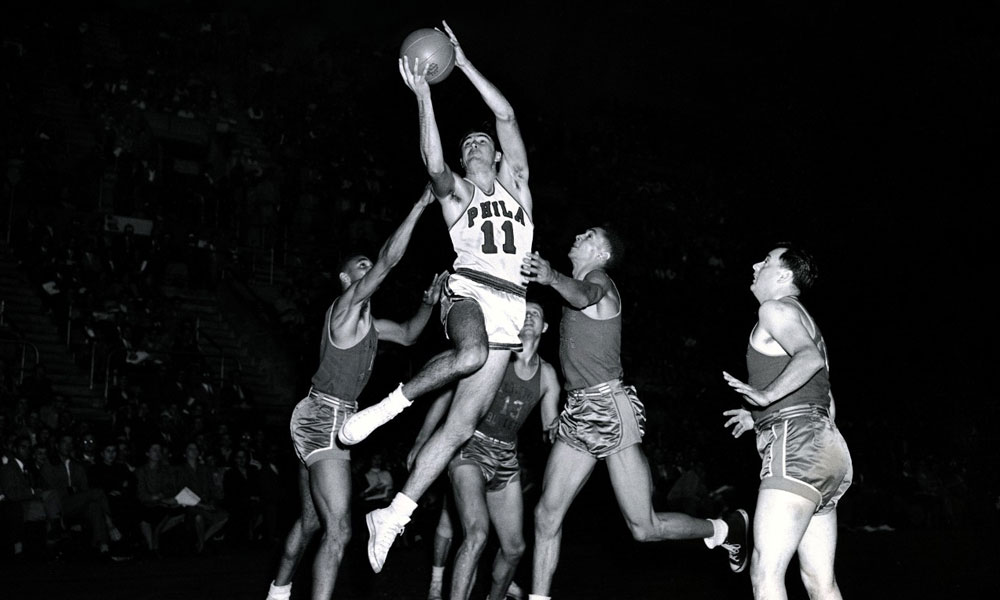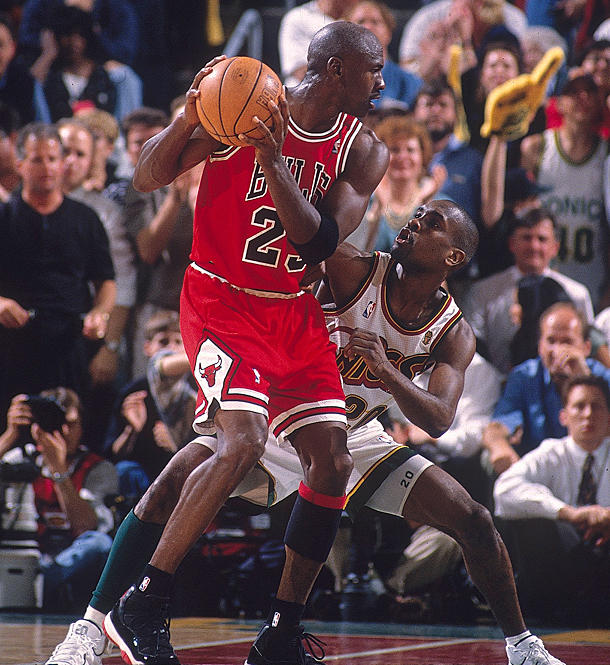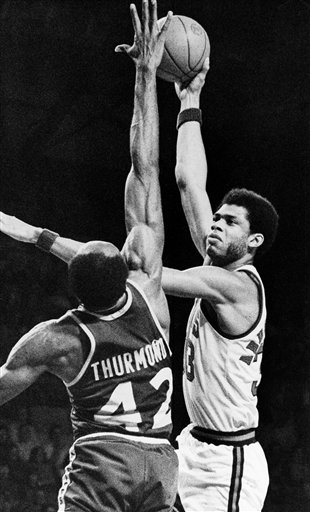trex_8063 wrote:Doctor MJ wrote:
So I think an important thing for us to put out there relating to this is this question:
What players in history saw their impact damaged as a result of taking too big of a scoring role?
Presuming such players exist, should we be more forgiving of that damage than damage caused by other means?
imo, there are important secondary questions to ask yourself in relation to this:
Let's take Nate Thurmond [since he's on the ballot] and Elvin Hayes [likely to be on there soon] as examples: I would say both may have damaged their impact by shooting too much. However.....
1) Were they advised to do otherwise? Do we have any evidence this was recognized as problematic, and relayed to them, and they just ignored it? (this relates somewhat to prior comments regarding conventional wisdom in earlier eras sometimes appearing as lacking compared to today)
If they were
not advised to shoot less; if their coaches failed to recognize a problem and/or scheme a solution to see them get the ball
less on offense........should we necessarily dock them for not recognizing that which the very guys who are supposed to be working out the strategy/scheming on offense failed to recognize?
2) The
type of lowere efficiency shot [that they take too many of] may have some other things about to consider. For instance, jump-shooting big-men frequently tend to turn the ball over less (because they're manuevering in traffic less, bringing the ball down low in a congested area less, etc). We might call this the "LaMarcus Aldridge Effect": he's oft criticized for his middling shooting efficiency, though it's rarely acknowledged that he possibly has the single-best big-man turnover economy
of all-time.
Other historic bigs who took too many turnaround jumpers or other mid-range shots
might (purely speculative, cannot say for certain) see a similar effect. Guys like Nate Thurmond and Elvin Hayes.
3) Shooting too much (particularly at lower efficiency) may indeed be a problem. However, the guys doing this typically CAN score to some degree: they're not utter non-threats (like Ben Wallace). Ben Wallace is SO non-threatening as a scorer, you can almost double off him with impunity (as long as you get a body on him when the shot goes up), because he can hardly finish anything: even though the vast majority of shots at the rim were gimmes and put-backs, he was a career 57.8% (peaking at 63.9%).......you actually have to look kinda hard to find players (even PG's) who finished worse than that, tracking down notable "bad" finishing guards to identify worse %'s at the rim. And then he falls off to ~26% anywhere outside of 3'.
Guys like Thurmond or Hayes, although they may shoot too much and thus have poor TS%, they cannot just be left alone or cheated off of in the same way that someone like Wallace [or Eaton] can be.
4) And lastly, some of the players we might be talking about, may be able to get you a mediocre shot in isolation (like when the play has broken down, and you just need to get something up before the shotclock expires). Shots on broken plays with the clock ticking down are typically going to be lower %; some of these players who are used to taking such shots, and making them at [perhaps anyway] a not awful rate, may occasionally be beneficial (again, relative to someone like Wallace/Eaton, who can't make anything).
Yup, these are the sort of things I was talking about - why one might choose not to hold a guy's negative effect on offense due to too much primacy against him. I'm currently going with an approach that's really based on what was actually achieved rather than who the more complete player was, but I understand others doing it differently.
To respond to your specific points:
1) The tricky part of "nobody told me not to" is when you consider a teammate who didn't need to be told. So the Hayes vs Unseld situation. If it turns out that Unseld was more valuable to the Bullets than Hayes specifically because he instinctively chose a better use of his skills, I'd chafe at ranking Hayes ahead on the grounds that he could have been the Bullets' MVP if someone had told him not to shoot so much.
Then of course there's the matter that there are all sorts of stories of Hayes being selfish and unpleasant to be around, which make it seem unrealistic that Hayes played the way he did simply because that's how coaches told him he needed to.
I say all of this not seeing it as a given that Unseld was more valuable than Hayes, and as we get to them, I'll listen to arguments comparing the two.
2) The theory of a big man camping in the mid-range rather than the low post, and thus being easier to pass to and reducing turnovers when the team passes to him, makes sense. It still leaves the question though of whether this is a wise choice of attack.
I think Aldridge does make sense to bring up given that he was not particularly inefficient by TS Add and was a focal point on good offenses. I'd feel better about Aldridge though if the Blazers actually had their best offenses with him in the era. At the time there was a question of "Yeah they're a good offense, but is the meh efficient mid-range volume scorer really something that can't be improved upon?", and I think we've since got a pretty clear answer of "Yes, it can."
Since Hayes & Thurmond were inefficient even for their own not-efficient time period, I'm not sure it makes sense to me to be try to see what they were doing on offense as a positive.
3 & 4) Regarding the cost of Wallace being able to be left alone, this is very relevant if you're considering how guys would do in the modern league - where opposing defense actually do this. As I've said, based on my current criteria, it's not particularly relevant to me, but it certainly could be for others.
When I think about this though, I tend to think about where you want guys to be placed as part of the offensive plan, and that means either a) positioned so that they can crash the boards, or b) positioned so they can hit an open 3.
If I want my big to be a Stretch 5, then I don't want Wallace...but I also don't want Hayes or Thurmond. (Aldridge would be okay, but not playing the way he did when he was an all-star.) If I want someone to crash the boards, well, then I think Wallace works pretty well.
The situation where everything is broken and my 5 happens to get the ball wide open from mid-range does make me prefer to have someone who can shoot that shot better, but I wouldn't see that as anything but a tiebreaker. I'll also say that it's not like Wallace never took and made shots from the midrange - he was the worst shooter of this bunch to be sure, but he did take these shots when it made sense. He was more likely to pass back out to the interior for a reset - which is of course what all of these guys should have done in most circumstances - but it's not that he never shot or that his form looked utterly toddler-like when he did so.
One last note:
When I think of leaving a guy unguarded, to me that's something you consider for perimeter players who can't shoot - the Tony Allens of the world. The idea isn't just that the player isn't a threat, but that there's other real estate you'd rather place your free defender, and that real estate is toward the interior.
When an offensive player wants to play on the interior, as Wallace does, the offensive concern with that is not that his man will be able to roam freely away from him, but that he and his man will clog the interior and prevent other methods of attacking the hoop. This gets back to the whole thing where if what you want is a Stretch 5, you don't want Wallace...but I don't think you want Hayes or Thurmond either.


/cdn.vox-cdn.com/uploads/chorus_image/image/69362242/1233176799.0.jpg)



















